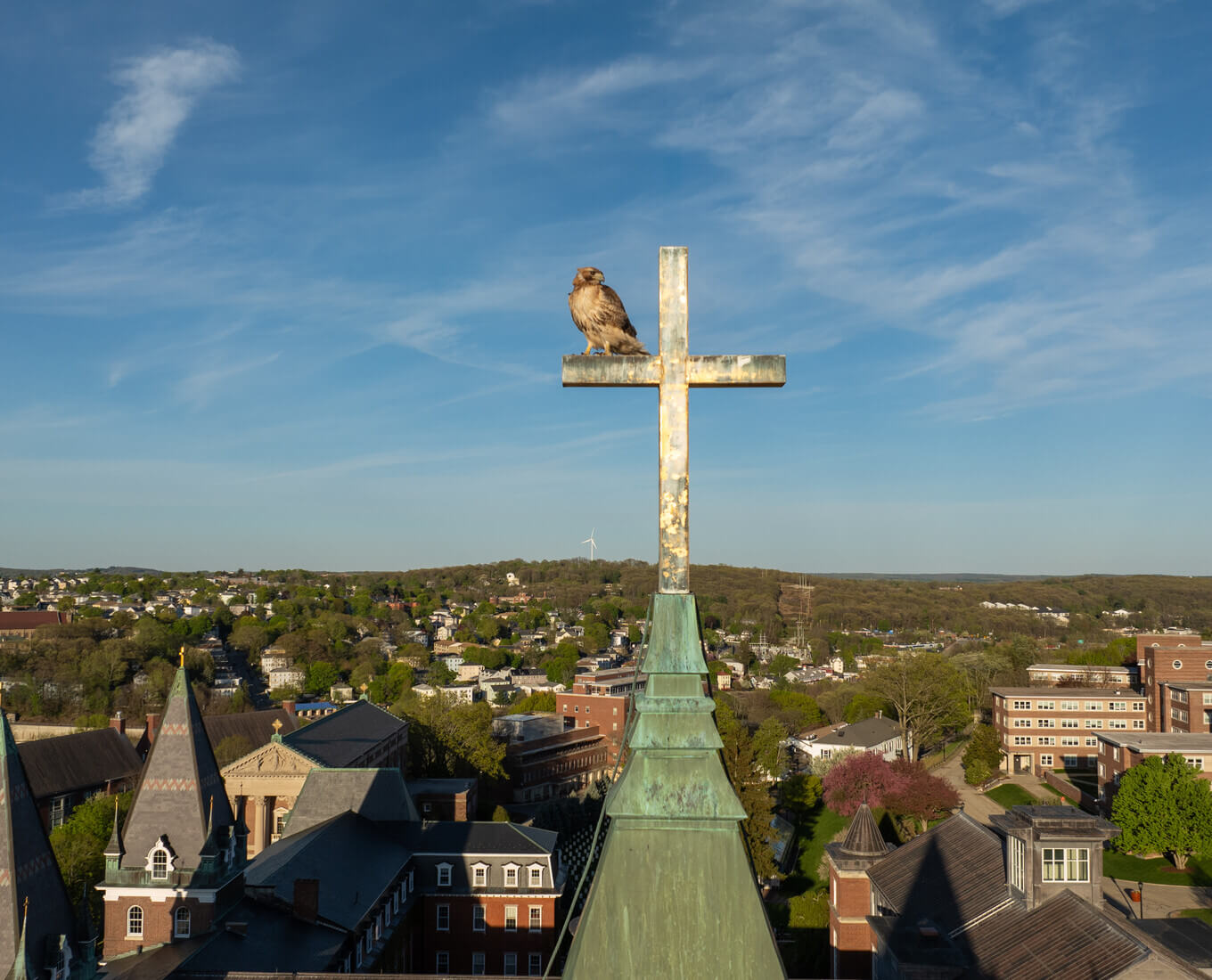WORCESTER, Mass. – David E. Sanger, chief Washington correspondent for The New York Times and one of the newspaper's senior writers, will deliver the annual Condé Nast Lecture on Media, Ethics and Values on Oct. 1 at 7:30 p.m. in Rehm Library (located in Smith Hall) at the College of the Holy Cross. The talk, which is free and open to the public, is titled “Covering War and its Aftermath: is the media confrontational enough?”
In his 25-year career at The New York Times, Sanger has reported from New York, Tokyo and Washington , covering a wide variety of issues surrounding foreign policy, globalization, nuclear advancement, Asian affairs and, recently, the arc of the Bush presidency. Twice he has been a member of Times reporting teams that won the Pulitzer Prize.
Before covering the White House, Sanger specialized in the confluence of economic and foreign policy, and wrote extensively on how issues of national wealth and competitiveness have come to redefine the relationships between the U.S and its major allies. As a correspondent, and later as bureau chief, in Tokyo for six years, he covered Japan's rise as the world's second largest economic power, and then its humbling recession. He filed frequently from Southeast Asia, and wrote many of the first stories about North Korea's secret nuclear weapons program in the 1990s. He continues to cover proliferation issues from Washington.
Leaving Asia in 1994, he took up the position of chief Washington economic correspondent, and covered a series of global economic upheavals, from Mexico to the Asian economic crisis. He was named a senior writer in March 1999, and White House correspondent later that same year. In October 2006, he was named chief Washington correspondent.
Sanger joined the Times in the Business Day section, specializing in the computer industry and high-technology trade. In 1986, he played a major role in the news team that investigated the causes of the space shuttle Challenger disaster, sharing the first stories of what NASA knew about the potential flaws in the shuttle's design and revealing that engineers had raised objections to launching the shuttle. The team won the 1987 Pulitzer Prize for national reporting. He was a member of another Pulitzer-winner team that wrote about the struggles within the Clinton administration over controlling exports to China.
In 2007, The New York Times received the DuPont Award from the Columbia Journalism School for "Nuclear Jihad: Can Terrorists Get the Bomb?,'' a documentary featuring Sanger and his colleague William J. Broad, based on their exceptional work uncovering the development of a nuclear network created by Abdul Khadeer Khan, the Pakistani nuclear engineer who helped arm Iran, Libya and North Korea. In 2004, Sanger was the co-recipient of the Weintal Prize for his coverage of the Iraq and Korea crises and won the Aldo Beckman prize for coverage of the presidency, awarded by the White House Correspondent's Association. The previous year he won another of the association's major prizes, the Merriman Smith Memorial Award, for coverage of the emergence of a new national security strategy for the U.S. In 2004, he and four other colleagues shared the American Society of Newspaper Editor's top award for deadline writing, for team coverage of the Columbia disaster.
Mr. Sanger appears regularly on public affairs and news shows, including WQXR, The New York Times radio station, where he delivers the Washington report.
Sanger’s lecture is made possible by a gift from Condé Nast Publications, coordinated by the company’s former president and CEO Steve Florio, parent of graduates from the classes of 2000 and 2003. Previous speakers in the series include David Brooks, columnist for The New York Times; David Remnick, editor of The New Yorker; Matthew Rose, reporter for the Wall Street Journal; Eric Schlosser, author of Fast Food Nation; and Peter Steinfels, columnist for The New York Times.
Condé Nast publishes numerous magazines including The New Yorker, Vogue, Architectural Digest, Vanity Fair, Bon Appetit and Gourmet. Condé Nast Publications mission stresses its commitment “to journalistic integrity, influential reporting and superior design.”
About The Center for Religion, Ethics and Culture:
Established in 2001 and housed in Smith Hall, the Center for Religion, Ethics and Culture provides resources for faculty and course development, sponsors conferences and college-wide teaching events, hosts visiting fellows, and coordinates a number of campus lecture series. Rooted in the College's commitment to invite conversation about basic human questions, the Center welcomes persons of all faiths and seeks to foster dialogue that acknowledges and respects differences, providing a forum for intellectual exchange that is interreligious, interdisciplinary, intercultural, and international in scope. The Center also brings members of the Holy Cross community into conversation with the Greater Worcester community, the academic community, and the wider world to examine the role of faith and inquiry in higher education and in the larger culture.
Chief Washington Correspondent for The New York Times to Give Annual Condé Nast Lecture
Read Time
4 Minutes


